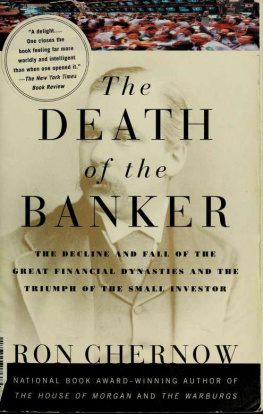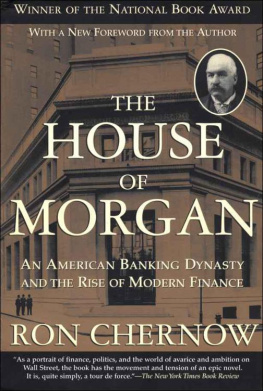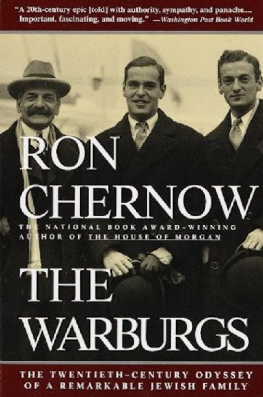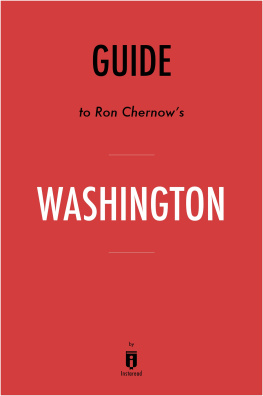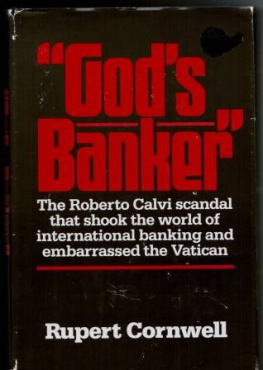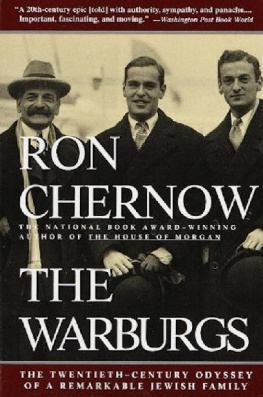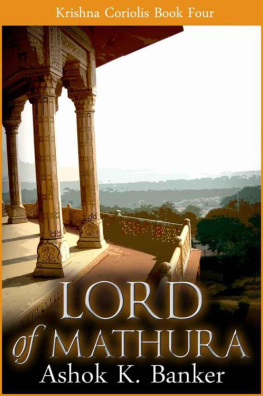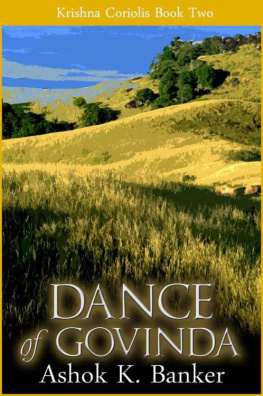Ron Chernow - The Death of the Banker: The Decline and Fall of the Great Financial Dynasties and the Triumph of the Small Investor
Here you can read online Ron Chernow - The Death of the Banker: The Decline and Fall of the Great Financial Dynasties and the Triumph of the Small Investor full text of the book (entire story) in english for free. Download pdf and epub, get meaning, cover and reviews about this ebook. year: 1997, publisher: Vintage, genre: Science. Description of the work, (preface) as well as reviews are available. Best literature library LitArk.com created for fans of good reading and offers a wide selection of genres:
Romance novel
Science fiction
Adventure
Detective
Science
History
Home and family
Prose
Art
Politics
Computer
Non-fiction
Religion
Business
Children
Humor
Choose a favorite category and find really read worthwhile books. Enjoy immersion in the world of imagination, feel the emotions of the characters or learn something new for yourself, make an fascinating discovery.
- Book:The Death of the Banker: The Decline and Fall of the Great Financial Dynasties and the Triumph of the Small Investor
- Author:
- Publisher:Vintage
- Genre:
- Year:1997
- Rating:3 / 5
- Favourites:Add to favourites
- Your mark:
- 60
- 1
- 2
- 3
- 4
- 5
The Death of the Banker: The Decline and Fall of the Great Financial Dynasties and the Triumph of the Small Investor: summary, description and annotation
We offer to read an annotation, description, summary or preface (depends on what the author of the book "The Death of the Banker: The Decline and Fall of the Great Financial Dynasties and the Triumph of the Small Investor" wrote himself). If you haven't found the necessary information about the book — write in the comments, we will try to find it.
The Death of the Banker: The Decline and Fall of the Great Financial Dynasties and the Triumph of the Small Investor — read online for free the complete book (whole text) full work
Below is the text of the book, divided by pages. System saving the place of the last page read, allows you to conveniently read the book "The Death of the Banker: The Decline and Fall of the Great Financial Dynasties and the Triumph of the Small Investor" online for free, without having to search again every time where you left off. Put a bookmark, and you can go to the page where you finished reading at any time.
Font size:
Interval:
Bookmark:
For my father.
Israel Chernow
WHO HAD THE COURAGE AND QUIET STRENGTH
Digitized by the Internet Archive in 2011
http://www.archive.org/details/deathofbankerdecOOcher
INTRODUCTION
f_>^ome1
ometimes authors are guilty of such excruciating subtlety that even their most faithful readers fail to spot the themes artfully embedded in their work. Such, I fear, was the case with my two lengthy sagas of banking dynasties. The House of Morgan and The Warburgs. Some special pleading is in order. Since many people consider "banking'' synonymous with "boring,'' the financial historian is tempted to sugarcoat the pill with diverting tales and thick dollops of local color, sometimes obscuring underlying ideas. Having undertaken to write two plump banking tomes, I tried to keep my touch light in deference to the material's weight. Perhaps novelists picture their readers curling up with their books in a fondly appreciative mood. I see my readers as a moody, bad-tempered crew, stamping their feet and glancing impatiently at their watches. To appease them, I have tried to craft well-paced narratives with enough characters to populate a Dickens novel. Now, with some sense of unfinished business, I welcome the chance to exhume those buried themes.
By design, my banking sagas have spanned more than a century of tumultuous events, for I wanted to depict both the heyday and the twilight of the financial gods. For the past decade, I have been intrigued by the conundrum of why the storied financial dy
nastiesthe Rothschilds, Morgans, Barings, Warburgs et al. flared so brilliantly at a certain historic juncture, then fell into eclipse. Why was their reign so spectacular but brief? These small, august private banks gave way to financial conglomerates that still proudly flaunt their predecessors' names and traffic in their inherited romantic histories as marketing tools; nothing sells quite so well these days as a classy image. But the dynastic families have long since faded from view, along with the whole web of intimate relationships with companies and sovereign states that constituted the essence of their power.
In this trio of essays, I try to explain why the financial dynasties have receded to the status of historic dinosaursthat is, why they represent not a permanent feature of economic life but a fleeting phase in the development of capitalist economies. My aim isn't to rummage in musty archives and evoke forgotten tycoons for their antiquated charm. The foremost banking dynasties tell us much about the shifting constellation of economic and political power. For this reason, I take their demise as my starting point for a panoramic survey of the world of high finance during the past two centuries. For all their majesty, the financial dynasties have been canaries in the coal mine, telling us much about unseen forces at work in the capital markets.
The first piece in this book, entitled 'The Death of the Banker," was delivered in Toronto in April 1997 as the Barbara Frum Memorial Lecture. While the printed version is considerably longer than the spoken one, it expounds the same points, albeit embellished with more bells and whistles. For future historians, the salient fact of twentieth-century finance will be the sharp erosion of banker powerthat is, the dwindling role of the financial intermediary. Bankers are glorified go-betweens, conduits for capital flows. During the twentieth century, they have progressively yielded power to providers of capital (both retail and institutional investors), on the one hand, and consumers of capital (notably large multinational corporations), on the other.
and in the process the banker's intermediary role in the financial equation has declined. A horrid term is sometimes employed to describe this phenomenon disintermediation ^but I will try, as much as possible, to avoid all such obfuscatory language and resort to plain English.
Since banking is a word subject to many meanings, it might be useful to lodge a caveat here. I am dealing principally with the Olympian world of high finance, what the French call haute banque. The reader must banish mundane thoughts of automated tellers, car loans, home mortgages, and so on, and ascend into the upper atmosphere of wholesale finance. This is the tony world that caters to large companies, sovereign states, and "high-net-worth" individualsonce upon a time known as "The Rich."
Many readers will say that I could have avoided unnecessary confusion by calling this book The Death of the Financier and that the term banker here is a misleading misnomer. Yet I use the word precisely to avoid confusion and facilitate comparisons across time and space. Ever since the Glass-Steagall Act of the 1930s, American finance has been partitioned into commercial banks (which take deposits and make loans) and investment banks (which issue, trade, and distribute securities). Since our discussion shuttles between an old world innocent of such distinctions, and a new world in which this nomenclature applies, "banker" seemed the best catchall term. When I talk of banking in the modern era, I am usually referring to investment bankers, although I wanted the liberty to cite parallel developments in commercial banking. Once again, banking is a conveniently elastic term that can be stretched across a multitude of situations. This is especially true when I turn to Germany, where the system of universal banking never disappeared.
Historically, the denizens of haute banque disdained the retail world of small investors and inhabited a separate, rarefied, hermetically sealed universe. The savings of small investors were considered too inconsequential to finance business or government, and
they were duly snubbed by the top-hatted money men. During the past generation, the small investor has evolved, in striking fashion, from a bit player and pariah to the mainstay of global financial markets. This shift has-been paralleled by a convergence of wholesale and retail finance. Hence, our story originates in a vanished world of paunchy men with watch chains, striped pants, and thick cigars, and ends up with the modem mutual-fund boom. Banded together in mutual funds, the meek have finally inherited the financial earth as the American economy has evolved from one based on banker power to one centered in the stock market. In reprinting my Barbara Frum Memorial Lecture, Random House of Canada invited me to append two companion pieces. In response, I decided to revisit both The House of Morgan and The Warburgs in supplementary essays that might serve to extend and illustrate the thesis of my Frum lecture. For those who have read those two sagas, I hope these essays will provide fresh insights and offer more than dehydrated morsels left over from the more ample spread they remember. Since J. Pierpont Morgan appears in the lecture and in the essay of the same name, I apologize to the reader, in advance, for a small amount of unavoidable repetition. Few people can resist the invitation to pontificate before an audience, and I would like to express my profound appreciation to David Frum and his family for giving me my hour to strut and amble upon the lecture stage. Fm also grateful to Doug Pepper of Random House of Canada and Marty Asher of Vintage Books, who provided the editorial enthusiasm that conquers a writer's midnight doubts. As always, I would also like to thank my agent, the indefatigable Melanie Jackson, and my lovely, long-suffering partner in crime, Valerie. My parents continue to provide inspiration by word and deed. Finally, I hope this volume helps to further honor the memory of the late Barbara Frum, one of the true giants of Canadian broadcasting.
3^A^e^ ^e^^/A^6>y^/A^^ e^y^/^/^y^
3^e ^ei^/^y^Oy^/Ae^ ^a^j4i^
hen I prophesy the death of the banker, I fear that instead of provoking weeping and lamentations, the news will be greeted by the heartless reader with a sigh of relief and loud, prolonged hosannas. For is there any creature on God's green earth so unloved as a banker? We envision him in stereotypical form as a grim, humorless man in late middle age with iron-gray hair, wire-rimmed spectacles, and a costive disposition. Of somber mien, with a permanent scowl on his face, he wears the dark, monochromatic suits of a small-town funeral director. In this historical caricature, he seems a born misanthrope who delights in saying no and rebuffing frivolous, unworthy enterprises. He maintains constant vigilance against the fuzzy claims and inflated numbers put forward by mischievous debtors whose principal object in lifeor so he is firmly convincedis to defraud him and bankrupt his institution.
Next pageFont size:
Interval:
Bookmark:
Similar books «The Death of the Banker: The Decline and Fall of the Great Financial Dynasties and the Triumph of the Small Investor»
Look at similar books to The Death of the Banker: The Decline and Fall of the Great Financial Dynasties and the Triumph of the Small Investor. We have selected literature similar in name and meaning in the hope of providing readers with more options to find new, interesting, not yet read works.
Discussion, reviews of the book The Death of the Banker: The Decline and Fall of the Great Financial Dynasties and the Triumph of the Small Investor and just readers' own opinions. Leave your comments, write what you think about the work, its meaning or the main characters. Specify what exactly you liked and what you didn't like, and why you think so.

